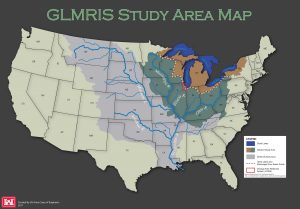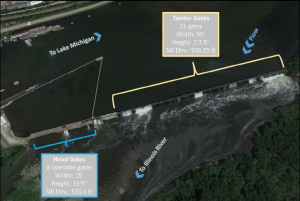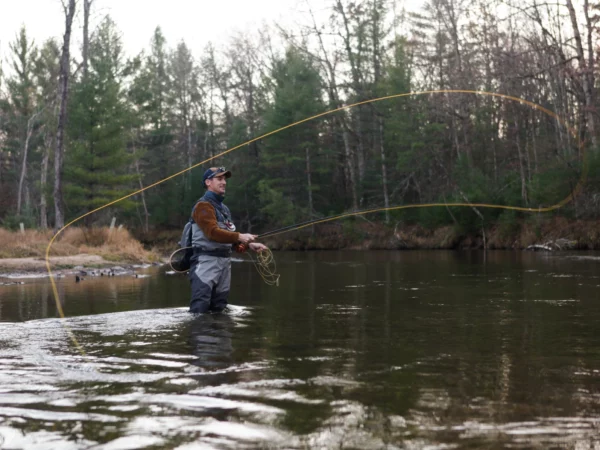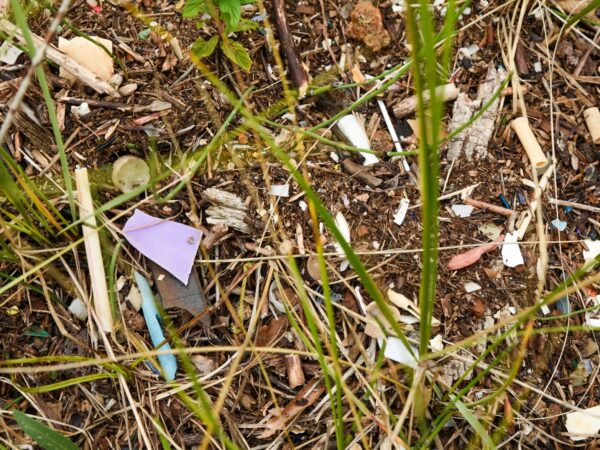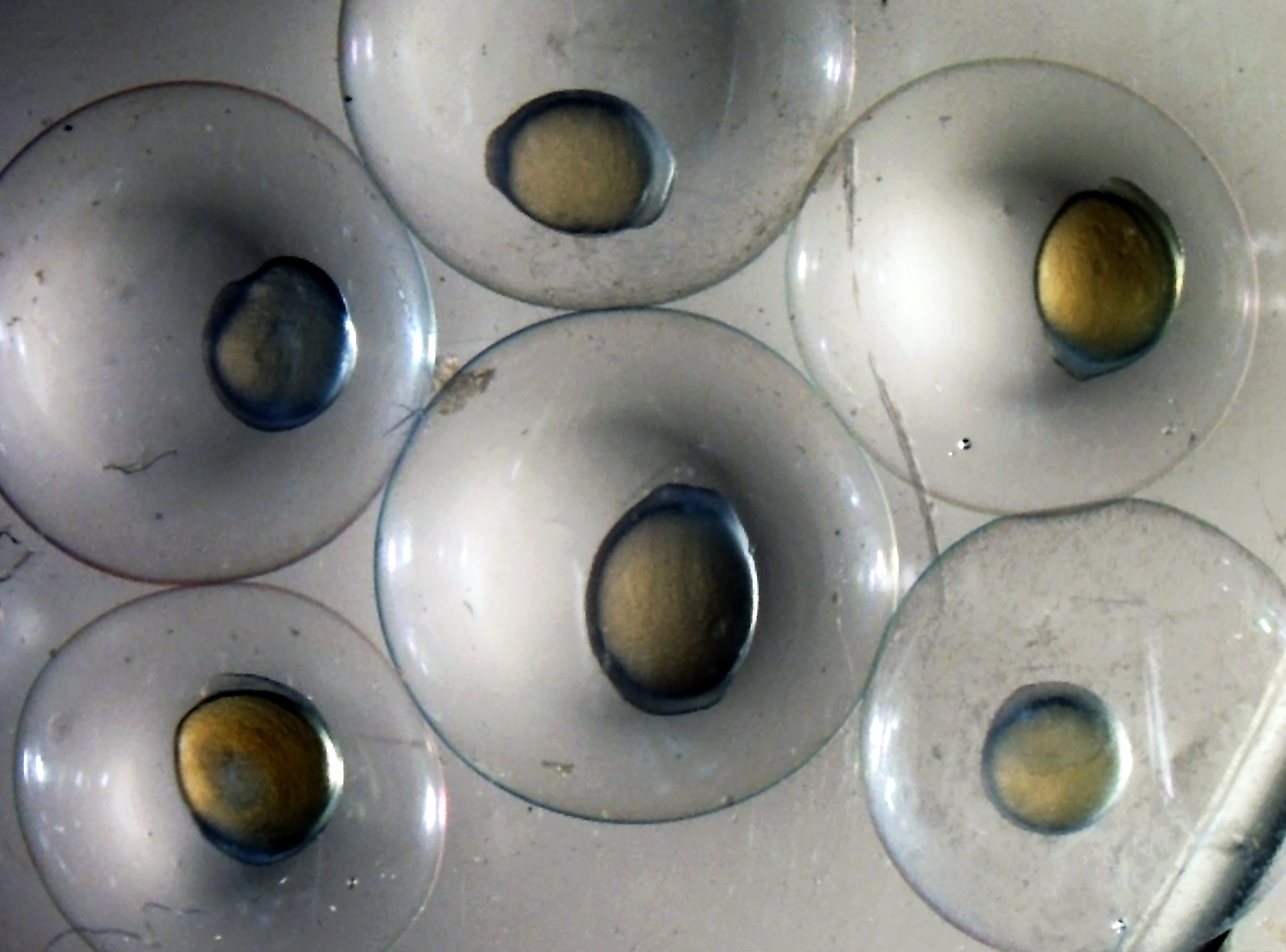
Obstinate Illinois, bogged-down federal response since 2009
Remember Asian carp?
They’re the voracious feeders that could threaten the balance of the Great Lakes ecosystem if a breeding population were to establish in the lakes.
It was 2009 when a team of Notre Dame biologists reported that eDNA testing revealed positive hits that the carp may have breached electric barriers in the Chicago waterways designed to keep them out of Lake Michigan.
That prompted a flurry of fishing to find a live carp, poisoning to kill them if they were present and it launched a quest for a permanent infrastructure solution to keep them and other aquatic invasive critters out of the Great Lakes.
Nine years later the federal government with the Army Corps of Engineers at the helm, along with Great Lakes states lead by Michigan are still in pursuit of solutions to thwart the carp assault.
“While we’ve spent the last 9 years talking about and debating the issue, the fish did not stop swimming,” Andrew Mahon told Great Lakes Now.

Andrew Mahon, Professor of Molecular Biology at Central Michigan University, Photo by cmich.edu
Mahon was on the Notre Dame team that discovered the eDNA beyond the electrical barriers. He is now a Professor of Molecular Biology at Central Michigan University’s Institute for Great Lakes Research (IGLR).
Mahon said while the region debated remedies the carp kept swimming and we’re now in a “the sky is falling” situation where “anything short of complete basin separation puts the Great Lakes at risk.”
Central’s Don Uzarski directs IGLR and he said Asian carp “will have a huge impact on the nearshore, and in particular coastal wetlands, but we are not going to see them swimming in the open water of the upper Great Lakes in substantial numbers.”
That’s “because zebra mussels, and now quagga mussels, have stripped the water column of plankton, the base of the food web.”
In other words, there’s nothing for the carp to eat.
What happened?
In late 2010, a year after the positive eDNA hits the Army Corps of Engineers launched the study of all studies to find a solution to the carp problem. When released in January of 2014 the study, the Great Lakes and Mississippi River Interbasin Study (GLMRIS), said the ultimate solution to stop Asian carp would be physical separation of the Great Lakes from the Mississippi River.
It would cost $15-$18 billion and take up to 25 years.
The region’s advocates hopped on board in favor of separation and one group saw it as serving two needs: stopping the carp and improving infrastructure.
It was “abundantly clear that the waterways in this state (Illinois) desperately need infrastructure investment,” the Natural Resources Defense Council’s Josh Mogerman told Great Lakes Now.
“Addressing the Asian carp threat is one of the only big pots of money out there which would update infrastructure on the rivers while also protecting important sectors of the economy and quality of life in this area,” Mogerman said.
Mogerman is NRDC’s Director of Communications in the group’s Chicago office overlooking the Chicago River.
But the separation option hit an immediate roadblock, a “no sale” from a normally Great Lakes friendly ally, Illinois Senator Dick Durbin.
“Though popular with some, complete separation of the Mississippi River and Lake Michigan would be one of the most costly water projects in the nation. I have seen too many of these long-term Corps projects languish for years and fall victim to Congressional inaction,” Durbin said in a press release days after the report went public.
Durbin said he hoped to see more practical solutions than those offered in the GLMRIS study.
Durbin’s rebuke was significant because he’s from Illinois and he’s also part of the Democratic Party’s congressional leadership. Without Durbin’s support, there was little hope for the plan.
Overreach
Great Lakes Now asked Marc Gaden from the Great Lakes Fisheries Commission if the region over-reached by pushing for physical separation.
“No, I don’t think it is in error to push for that,” Gaden said. “It’s what everyone knows what needs to happen, so why ignore it?”
While applauding the region for its stewardship, Gaden said there has been foot dragging and he noted the strong opposition by barge operators who don’t want physical changes made to the waterways system.
As a project, separating the Great Lakes from the Mississippi River exists in the GLMRIS study, but it isn’t talked about as a realistic option.
One last hope
One infrastructure option still seemed viable and in November of 2014, the Army Corps announced plans to study the feasibility of establishing an Asian carp chokepoint at the Brandon Road Lock in Joliet, Illinois 30 miles from Chicago.
The Corps announcement came five years after the initial positive eDNA findings.
The “Tentatively Selected Plan” based on the study was scheduled for release in February of 2017 but it was delayed by the Trump administration.
Bowing to regional pressure, the plan was released and modifying the Brandon Road Lock would come with a $275 million price tag and an implementation date of 2025, 16 years after the eDNA hits.
Julie Jacobson is a Senior Fellow at the Environmental law and Policy Center and she told Great Lakes Now that she expects the cost to be much higher. Jacobson said a draft report with updated costs is due in November with a final report scheduled for February 2019.
The Army Corps’ Chicago District office did not respond to requests to comment on Brandon Road and its costs.
The plan, while not the ultimate solution, has broad regional support except in Illinois which is still leary about infrastructure changes that could upset or slow down barge shipping.
Michigan intervention
By early 2018 Michigan Gov. Rick Snyder had tired of the snail’s pace progress on Brandon Road.
He put together a coalition of Great Lakes states who said they would pay the annual expense of operating and maintaining the Brandon Road Lock, a requirement of the plan. He hoped that would make it more palatable to Illinois.
Snyder also identified unused federal funds that could be available to support the Brandon Road project that existed in a Chicago Metropolitan Water Reclamation District (MWRD) account. The district is a state agency.
MWRD told Great Lakes Now earlier this year that it does not support the Brandon Road Lock modification and spokesperson Allison Fore reiterated that position for this report.

Allison Fore, Public and Intergovernmental Affairs Officer at the MWRD, Photo by mwrd.org
“The MWRD does not support the current Brandon Road plan proposed by the (Army) Corps, and it is premature to discuss how that project could be funded and whether the MWRD would have any involvement,” Fore said.
Discussions on how to move forward on Brandon Road have been ongoing between the Snyder administration and that of Illinois Gov. Bruce Rauner.
Snyder spokesperson Jordan Kennedy told Great Lakes Now that there has been regular contact with Gov. Rauner’s office and they look forward to continuing the dialogue.
In a statement, Illinois Lt. Governor Evelyn Sanguinetti reinforced the state’s commitment to keep Asian carp out of the Great Lakes and called the Brandon Road project “critically important” but did not commit Illinois to implementing it.
Sanguinetti said “any discussion of cost-share agreements prior to the project being finalized is premature – but it is great to know our friends in Michigan are willing to contribute considerable financial resources to move a project forward.”
The clock is ticking on the two governors to make a deal. Snyder is term-limited and will leave office in January. Illinois Gov. Rauner is up for re-election in November and he faces a stiff challenge from Democrat J.B. Pritzker.
The Pritzker campaign did not respond to Great Lakes Now inquiries on the Asian carp issue.
In spite of Great Lakes restoration efforts since 2010 under the Obama administration, progress and results on the most serious threats – algae blooms in Lake Erie and Asian carp – have been the victim of delay approaching a decade.
Featured Image: A collection of carp eggs, Photo by Reuben Goforth purdue.edu



